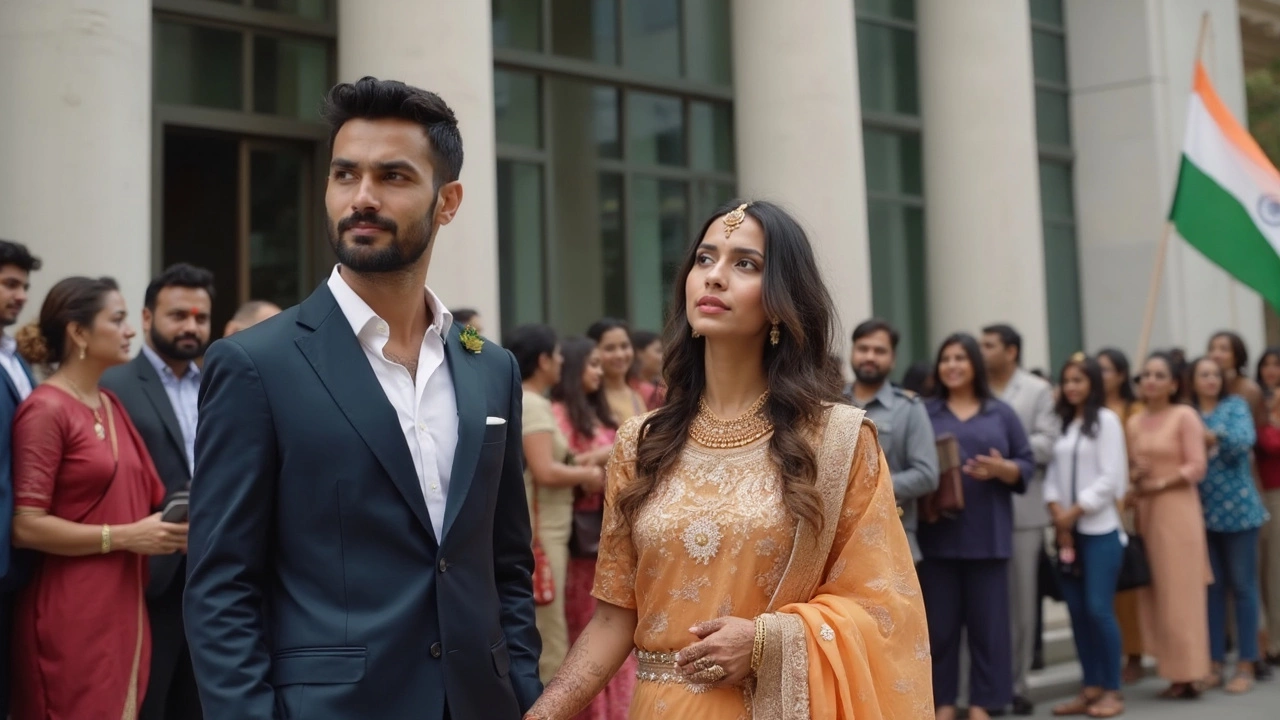NRI Marriage: How to Get Married Legally When You’re Living Abroad
Got a partner living overseas and wondering how to tie the knot without a legal mess? You’re not alone. Many Indians face the same question, and the answer is simpler than you think once you know the steps. This guide walks you through the paperwork, the court procedures, and the everyday tricks that keep the process stress‑free.
Key Legal Requirements
First things first: Indian law still applies to your marriage, even if the ceremony happens in another country. The main act governing marriage for most Indians is the Hindu Marriage Act (or the Special Marriage Act if you’re from a different faith). Both acts require three things – age, consent, and a valid marriage license.
Here’s the checklist you’ll need:
- Age proof: Both partners must be at least 21 (groom) or 18 (bride). Carry a passport copy or a government ID that shows your birth date.
- Consent: You both must sign a declaration that you’re marrying voluntarily. This is usually done at the Indian embassy or consulate.
- Notice of Intended Marriage: File this at the nearest Indian consulate at least 30 days before the wedding. The consulate will post a public notice to give anyone a chance to raise objections.
- Marriage Certificate: After the ceremony, the consulate issues a Certificate of Marriage. Keep it safe – you’ll need it for visas, passports, and future legal work.
If you choose a court marriage in India instead, the process is almost identical, just without the overseas travel. The consulate route is popular because it avoids a long trip back home.
Practical Tips for a Smooth Process
Now that you know the legal bits, let’s talk about the real‑world details that save time and money.
Start early. The 30‑day notice period can feel long, but it’s the safest way to avoid last‑minute rejections. Begin gathering documents as soon as you decide to marry.
Get your documents notarized. Some papers, like your birth certificate or divorce decree (if applicable), need to be notarized in the country you’re living in before the Indian consulate will accept them.
Use the Special Marriage Act for inter‑faith couples. If you and your partner belong to different religions, the Special Marriage Act is the easiest route. It doesn’t require a religious ceremony, just a civil one at the consulate.
Watch out for local residency rules. Some countries demand a minimum stay before you can register a foreign marriage. Check the local embassy website to avoid surprises.
Keep copies. Make digital and printed copies of every document. If a paper gets lost at the consulate, you’ll have a backup ready.
Once you have the marriage certificate, you can apply for a spouse visa, update your Indian passport, and even file for tax benefits back home. The certificate is also the key to proving your marriage for any future legal matters, like property registration or joint bank accounts.
Remember, marrying as an NRI isn’t just a legal formality – it’s the start of a new life together. By following these steps and staying organized, you’ll avoid the typical headaches and enjoy a celebration that feels right for both of you.
If you’re still unsure about any part of the process, reach out to a qualified family lawyer who specializes in NRI matters. A quick consultation can clear up doubts before they become problems.
Happy planning, and congratulations on your upcoming marriage!
Register Marriage in the US: What Indians Need to Know
Caught between two countries? Wondering if you can register your marriage in the US as an Indian or NRI? This article uncovers how marriage registration works overseas, why it matters for Indians, and how it connects with Indian authorities. Get straight answers, practical tips, and what nobody warns you about—before you tie the knot or get your marriage certificate.
